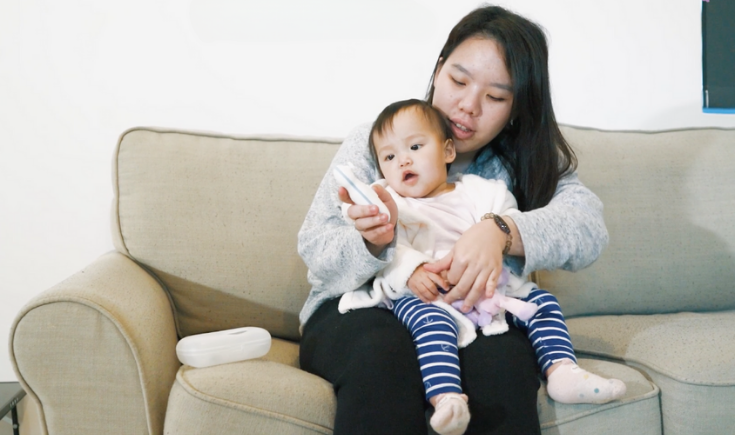

One important aspect of a child’s wellbeing (well, ten little things!) that often gets overlooked is their hands and feet.
The tiny fingers and toes of a newborn are incredibly delicate and downright adorable, while those of a toddler are playful, cute, and wriggly. It’s understandable that parents might feel anxious about caring for little hands and feet, but it can be done safely and easily.
Let’s take a closer look at why it’s essential to give these areas some extra TLC, whether you have a newborn or a toddler, and what you can do to ensure that those sweet little fingers and tootsies remain clean, healthy, and supportive of their development and growth.
Why it’s important to care for little hands and feet
You might not have given it much thought before, but there are several reasons why you need to care for your little one’s hands and feet:
Prevents infection
The number one way to help prevent the spread of germs is to keep your child’s hands clean and their fingernails short. Children can easily pick up bacteria and viruses from surfaces and transfer them to their mouths, eyes, or nose, or to other people or objects they touch.
Prevents scratching
Long nails can easily lead to unintentional scratches to others (if you’ve ever experienced their tiny talons pinching your skin during a breast or bottle feed, you’ll know how painful it is!) or themselves, particularly during their sleep.
Prevents other injuries
You already know how much little ones need to be on the move once they’re mobile. Proper foot care can help prevent blisters and other injuries that make them feel uncomfortable and potentially limit their movement.
Prevents ingrown nails
Long nails can cause discomfort, but they can get really painful if they become ingrown. Treatment for ingrown nails is quite involved, and if it becomes severe, your doctor may recommend removing a portion of the nail.
Develops good hygiene habits
Showing your child how to properly wash and care for their hands and feet now can set them up for a lifetime of healthy hygiene habits.
How to care for little hands and feet
Now that you know how important it is to look after your child’s hands and feet, here are some simple, stress-free steps to go about it:
1. Keep their fingernails and toenails trimmed
Trim their nails straight across, avoiding cutting them too short. If your child doesn’t like it or you’re nervous about cutting their skin, try a nail trimmer that files their nails rather than using traditional nail scissors or clippers. Look for a battery-operated trimmer that is adjustable to your child’s age.
2. Keep your child’s hands clean
Wash them regularly with a mild soap and warm water. That goes for small babies, too. Make sure to get between the fingers and under the nails. If you are out and don’t have access to soap and water, hand sanitiser should only be used under adult supervision and kept out of reach of children.
3. Moisturise their skin
Soothing lotion can also help keep hands soft and nourished. Look for one that is free of perfumes and other additives.
4. Monitor your child’s feet and hands for any signs of infection
Keep an eye out for redness, swelling, blisters, and any other unusual signs that could indicate an infection. Another thing to be aware of and watch out for is when a strand of hair or thread wraps around a baby’s fingers or toes and cuts off the circulation, otherwise known as hair tourniquet syndrome.
5. Make sure your child wears shoes that fit properly and are comfortable
For toddlers who wear shoes, have their feet professionally measured every 3-6 months, as their feet can grow quickly. Look for signs that their shoes are rubbing, or any other injuries are present.
6. Apply sunscreen to your child’s feet and hands when outdoors
During the warmer weather, don’t forget to protect those delicate areas from the sun. Since sunscreen isn’t suitable for newborns, use baby mittens instead.
7. Encourage your little one to go barefoot
Finally, babies and toddlers should go barefoot as much as possible because it helps develop coordination and balance. It also strengthens the muscles and arches in the feet, which leads to better posture and improved movement. Going barefoot also allows babies and toddlers to better sense the ground beneath their feet, which can help them learn to walk better. Finally, it’s the easiest form of sensory play!























